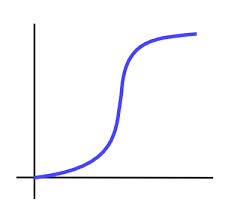Two posts ago I sent you a few paragraphs from the introduction to my new book. In that draft I said:
This book makes the case that addiction results from the motivated repetition of certain thoughts and behaviors until they become self-perpetuating habits. Thus, addiction develops, and it can develop quickly, through a process I call accelerated learning.
 I woke up at 5:30 today and couldn’t get back to sleep because I realized that this portrayal is flawed. Of the five people whose biographies I include in the book, two of them make it very clear that addiction can have a slow or delayed onset. The man I call Brian was using coke and then methamphetamine for about two years before he became really addicted. At first he just wanted to stay awake and energetic. But then he slid deeply into addiction, to the point of smoking meth every few hours and missing many nights of sleep in a row. The woman I call Donna was on
I woke up at 5:30 today and couldn’t get back to sleep because I realized that this portrayal is flawed. Of the five people whose biographies I include in the book, two of them make it very clear that addiction can have a slow or delayed onset. The man I call Brian was using coke and then methamphetamine for about two years before he became really addicted. At first he just wanted to stay awake and energetic. But then he slid deeply into addiction, to the point of smoking meth every few hours and missing many nights of sleep in a row. The woman I call Donna was on  Vicodan for a year to treat back pain caused by a bicycle injury. Only then did she start doubling her dose and liking how it felt. She ended up forging prescriptions and stealing pills from just about everyone she knew. It blew apart her marriage and her life.
Vicodan for a year to treat back pain caused by a bicycle injury. Only then did she start doubling her dose and liking how it felt. She ended up forging prescriptions and stealing pills from just about everyone she knew. It blew apart her marriage and her life.
Both these people eventually recovered, as most addicts do. The point is, though, that the learning spiral leading to addiction need not cycle quickly. At least not at first.
So I lay there till the alarm went off, thinking, okay, what the hell is it? What makes it different from other learning trajectories — other bad habits? The phrase “overlearning” popped into my head from undergrad psychology. Here’s the definition — which highlights extended practice that results in “escalated persistence of the learning over time.” But that was an idea that faded with the decades, because it simply described the use (especially in classroom settings) of a greater number of learning trials to get a longer period of retention. Not all that interesting after all. Unless you bring in the power of motivation and start thinking about dopamine.
So how am I going to resolve this? As mentioned last post, I am still doing final edits. But I have to figure out a concise description of the psychological process leading to addiction, a particular twist to the more general mechanism of learning, or the book will have a big hole in it. It’s there in the stories. It’s there in the neurobiological details. I think I show very clearly that drug addiction is no different from falling (deeply) in love — both in its psychology and its biology — or from behavioral addictions, etc. Still… I have to find that phrase.
By the time the alarm went off, I was pretty set on “deep learning.” As long as that’s fully explained, I think it works. And it will be fully explained, if it isn’t already. So now I have to make a new set of revisions.
I know some people get addicted very quickly, once they’ve found their substance (or activity) of choice. But that’s not universal — or mandatory. I want to explore this in some detail next post.
Now back to the grindstone.

Leave a Reply to Matt Cancel reply